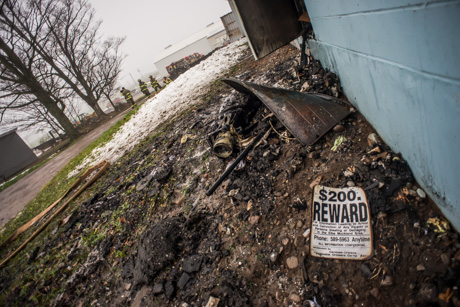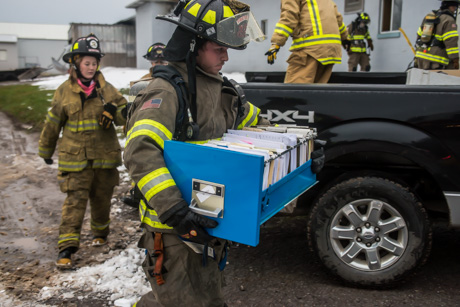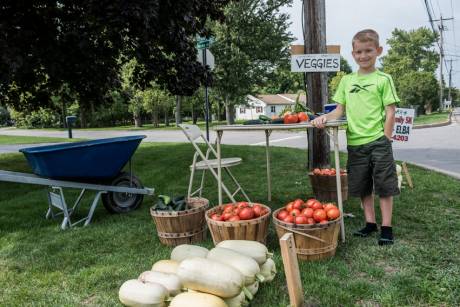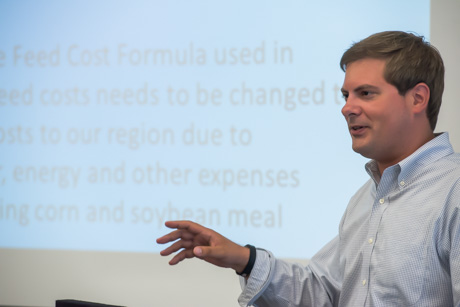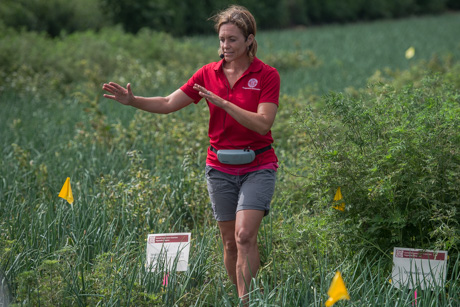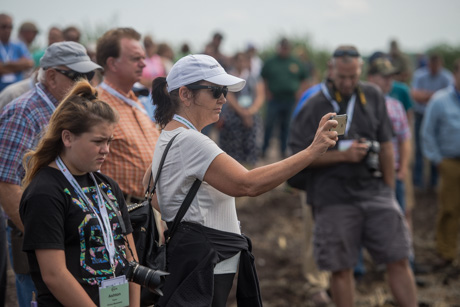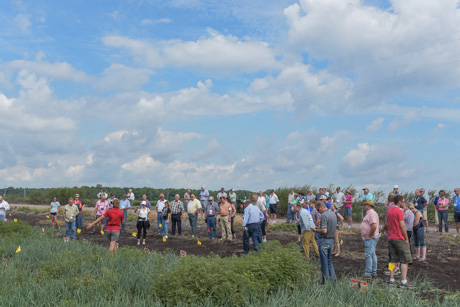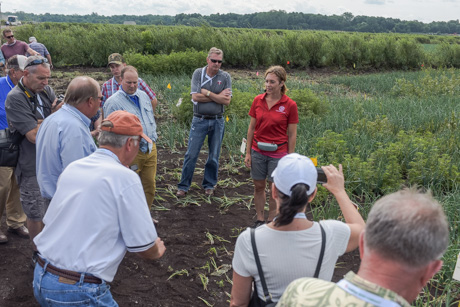New York Farm Bureau elects new president, replacing Dean Norton
Elba's Dean Norton has been replaced as president of the New York State Farm Bureau in an election held this evening at the bureau's annual meeting.
Norton, a dairy farmer, has been president and face of the farm bureau for eight years, representing the bureau not just in New York but in Washington, D.C., and around the nation.
The membership instead elected David Fisher, who owns a large dairy farm in St. Lawrence County, as president.
The nominees were Norton, Fisher and Mark Dunau.
(Information via the NY Farm Bureau's Twitter postings.)
UPDATE: Press release:
During the New York Farm Bureau State Annual Meeting in Albany, voting delegates elected David Fisher, a dairy farmer from St. Lawrence County, as the new president of the organization.
Fisher and his family have operated Mapleview Dairy in Madrid, N.Y. for four generations. He has served on the New York Farm Bureau Board of Directors for the past five years and previously was president of St. Lawrence County Farm Bureau. A graduate of Cornell University, Fisher earned a degree in Animal Science.
Fisher replaces Dean Norton who served as president for the past eight years.
“I am humbled that the farmer members of New York Farm Bureau have placed their confidence in me to lead this great organization. My family has a long history with Farm Bureau, and I am excited to work on behalf of our diverse membership to increase the value and visibility of New York agriculture. I would also like to thank Dean Norton for his service and commitment to New York Farm Bureau,” said David Fisher, president of New York Farm Bureau.
Vice President Eric Ooms, a dairy farmer from Columbia County, was re-elected to his position.
In addition, representatives to the State Board of Directors were elected, too. This concluded the annual two-day long meeting where resolutions were discussed and voted on to set NYFB’s 2017 public policy agenda.
Those elected include Pat McCormick of Wyoming County, re-elected as District 2 Director; Lin Davidson of Tompkins County was elected as District 4 Director; Jacob Schieferstine of Oneida County was re-elected as District 6 Director; Dean Casey of Rensselaer County, re-elected as District 8 Director; Chris Kelder of Ulster County, re-elected as District 10 Director; Kristen Brown of Orange County as the new Young Farmer and Rancher Chair on the State Board and Phyllis Couture of Cattaraugus County was re-elected as the Promotion and Education Chairperson on the State Board.
In addition, New York Farm Bureau handed out the Distinguished Service to Agriculture Awards to two worthy individuals who have made an impact on New York Farm Bureau and agriculture in this state. The awardees were Chris Fesko of Skaneateles, N.Y. and member of Onondaga County Farm Bureau, and Michael DellaRocco of Melrose, N.Y., a member of Rensselaer County Farm Bureau.
Finally, New York Farm Bureau announced two recipients of the James Quinn Award that recognizes extraordinary efforts by individual Farm Bureau members during the course of a given year “to serve and strengthen agriculture”. The honorees were Joe and June Swyers of Livingston County Farm Bureau and Brad and Carolyn Almeter of Wyoming County Farm Bureau.



